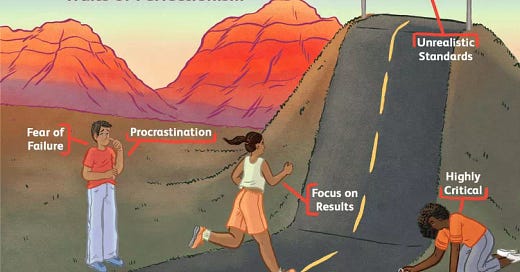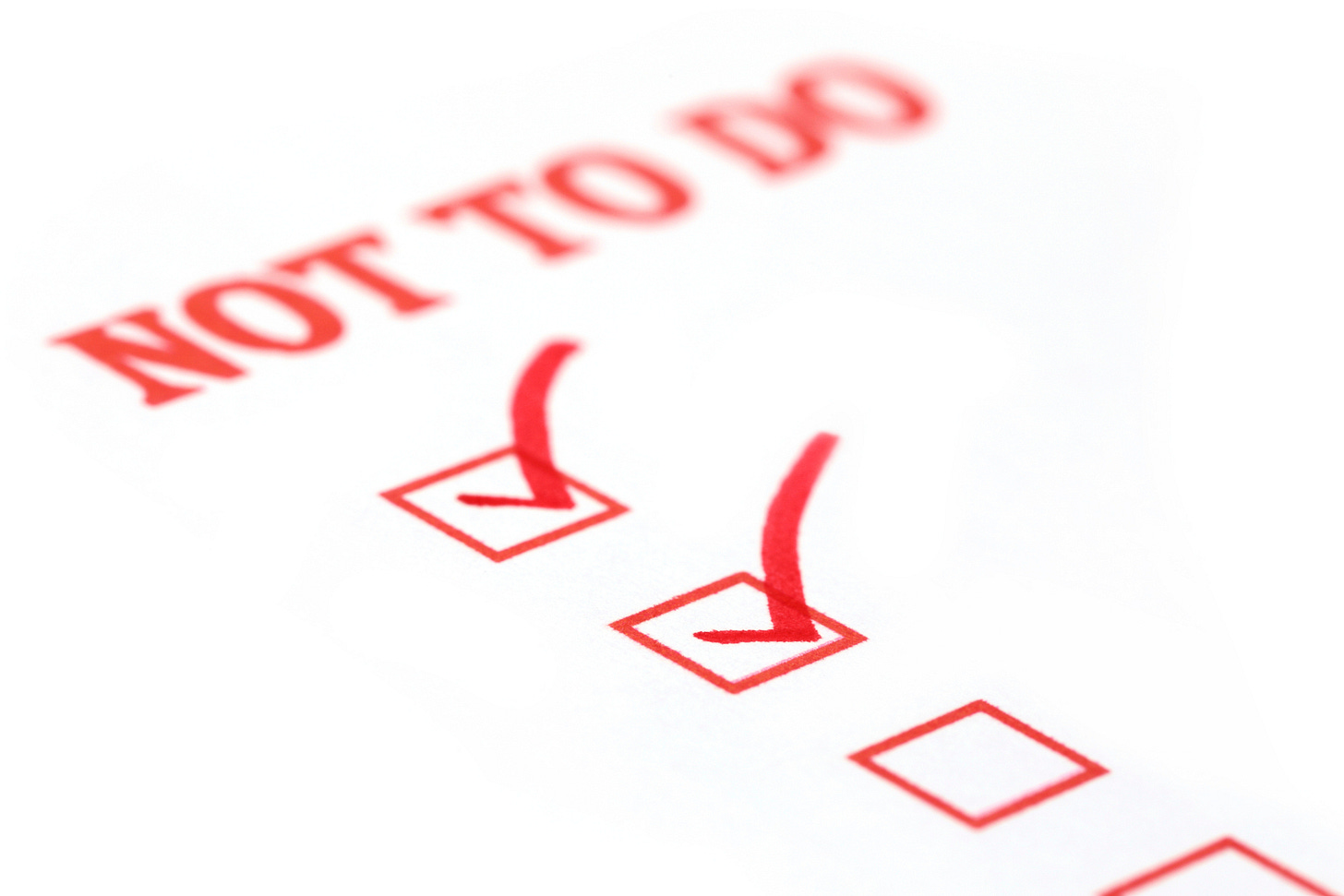Happy Tuesday, the results are in! This past week I ran a poll asking, “What's one thing you wish you had more of?” across a few platforms. The options were money, fame, time, or meaning. The results by platform:
Newsletter - Meaning (44%), Money (33%), Time (22%), Fame (0%)
LinkedIn - Time (58%), Money (31%), Meaning (10%), Fame (0%)
Instagram - Time (81%), Meaning (12%), Money (6%), Fame (0%)
Time was the clear winner. With that in mind, this week I’ve got 8 common mistakes that prevent high impact design research, an excerpt on perfectionism and a great productivity tool, Llama Life.
Let’s get into it!
I. UX Research Mistakes to Avoid
Maybe you can relate, your stakeholders think design research is a waste of time. They had experiences where the team had conducted research, validated the ideas but then once the product launched, customers didn’t use it 😳. How did that happen?
Here are 8 common mistakes preventing you from conducting high impact design research:
Unclear research goals/objectives (must-have well-defined questions that should be answered by the end of the study)
Project and client teams not observing the research and participating in the synthesis
Asking participants leading or loaded questions (ex: Which of our product features did you find most useful? this assumes they found them useful)
Seeking validation VS feedback, must create space for participants to be critical
Talking more than listening or selling your concept to participants
Having no stimuli for participants to react to
Not leveraging activities (ex: card sorting) to co-create with participants
Selecting a group of participants that do not represent the target population or mixed sentiment (positive, neutral, negative) toward your product, service, technology, company
II. Perfectionism
A 2,000 lbs horse is controlled by a 16 oz bridle. Too often perfectionism is my bridle. Spending too much time and energy trying to make things perfect. As I’ve been working my way through Julia Cameron’s book, The Artist’s Way, I have been unpacking my tendencies and loved this excerpt from week 7:
PERFECTIONISM
Perfectionism has nothing to do with getting it right. It has nothing to do with fixing things. It has nothing to do with standards. Perfectionism is a refusal to let yourself move ahead. It is a loop—an obsessive, debilitating closed system that causes you to get stuck in the details of what you are writing or painting or making and to lose sight of the whole. Instead of creating freely and allowing errors to reveal themselves later as insights. We correct our originality into a uniformity that lacks passion and spontaneity. “Do not fear mistakes,” Miles Davis told us. “There are none.”
The perfectionist fixes one line of a poem over and over—until no lines are right. The perfectionist redraws the chin line on a portrait until the paper tears. The perfectionist writes so many versions of scene one that she never gets to the rest of the play. The perfectionist writes, paints, creates with one eye on her audience. Instead of enjoying the process, the perfectionist is constantly grading the results.
The perfectionist has married the logic side of the brain. The critic reigns supreme in the perfectionist’s creative household. A brilliant descriptive prose passage is critiqued with a white-glove approach: “Mmm, What about this comma? Is this how you spell…?”
For the perfectionist, there are no first drafts, rough sketches, warm-up exercises. Every draft is meant to be final, perfect, set in stone.
Midway through a project, the perfectionist decides to read it all over, outline it, see where it’s going.
And where is it going? Nowhere, very fast.
The perfectionist is never satisfied. The perfectionist never says, “This is pretty good. I think I’ll just keep going.”
To the perfectionist, there is always room for improvement. The perfectionist calls this humility. In reality, it is egotism. It is pride that makes us want to write a perfect audition monologue.
Perfectionism is not a quest for the best. It is a pursuit of the worst in ourselves, the part that tells us that nothing we do will ever be good enough–that we should try again.
No. We should not.
“A painting is never finished. It simply stops in the interesting places,” said Paul Gardner. A book is never finished. But at a certain point you stop writing it and go on to the next things. A film is never cut perfectly, but at a certain point you let go and call it done. That is a normal part of creativity—letting go. We always do the best that we can by the light we have to see by.
(Excerpt from The Artist’s Way by Julia Cameron)
III. Productivity Tool: Llama Life
While I’m very intrigued by all the new AI tools, I love the simplicity of Llama Life and frankly, that I don’t have to integrate my to do list, calendar, etc. to start getting value from the tool. On the UX side, here are 3 things that stood out:
The onboarding questions customize the experience for me while educating me on the tool
Provides a simple report, showing the tasks you've completed and how much time they took
Llama Life has personality, bringing needed fun in subtle ways like emojis, color, gentle chimes, etc.
One critique—it wasn’t clear to me what to do once the timer went off when I didn’t need to go into “overtime”. Hitting “Complete” on the tile will move you on to your next task. All in all, it’s been a great addition to my toolkit and worth the learning curve.
I’d love to hear your experience/thoughts in the comments! Or have a tool you love? Please share 😊
That’s it for today. Thanks for reading!
Until next week,
raika







You are the third person that has brought up The Artist Way in the last week. I already do morning pages most day and go on artist dates, but you've actually tipped me over the edge on actually reading it and going through it.
For productivity I use https://www.forestapp.cc/. It basically blocks my phone out so it can be pretty rigid, but I love how beautifully it visualizes some of the main activities that I block my phone out for. I'm all for apps being more playful/fun. A lot of productivity apps seem too minimalist lately.